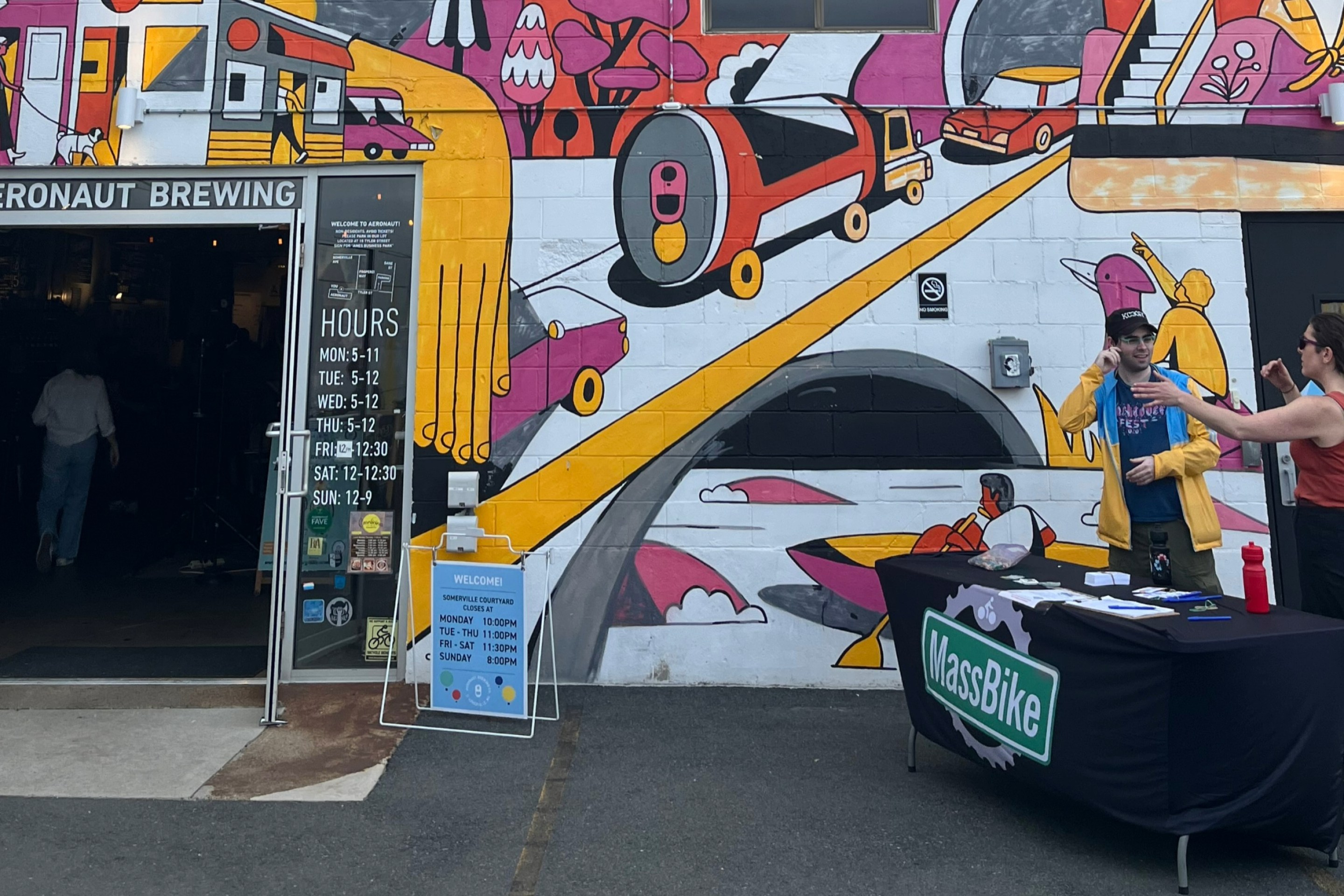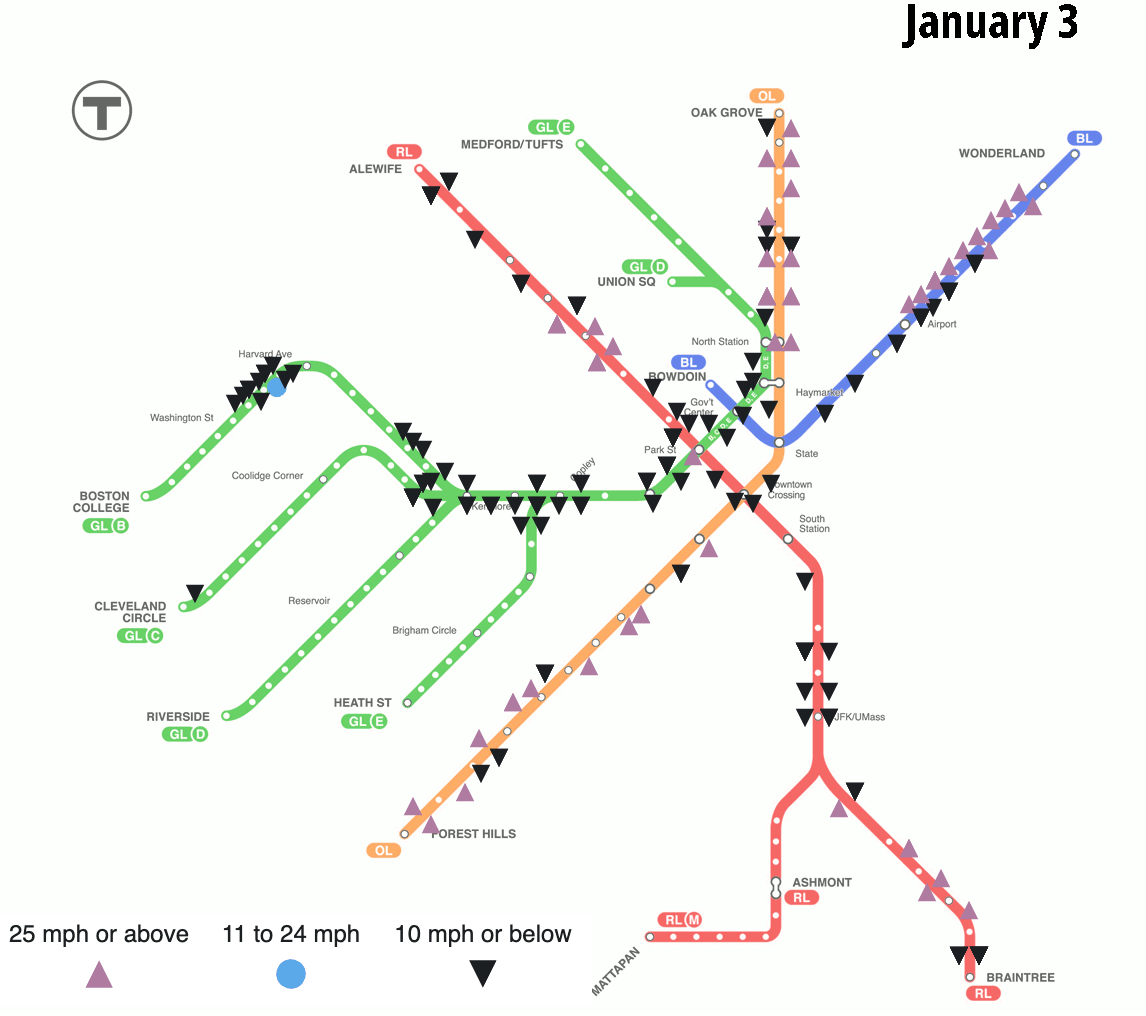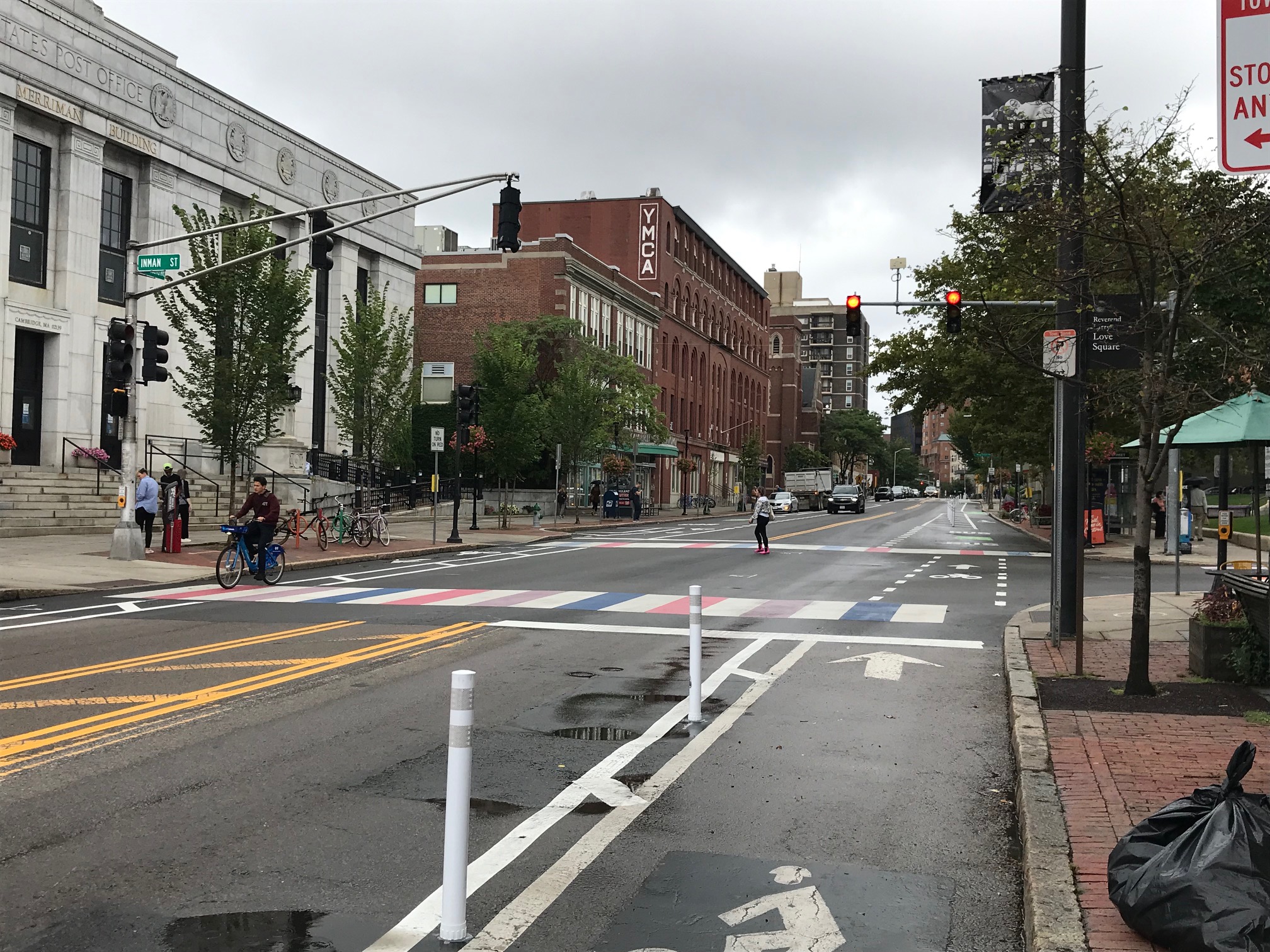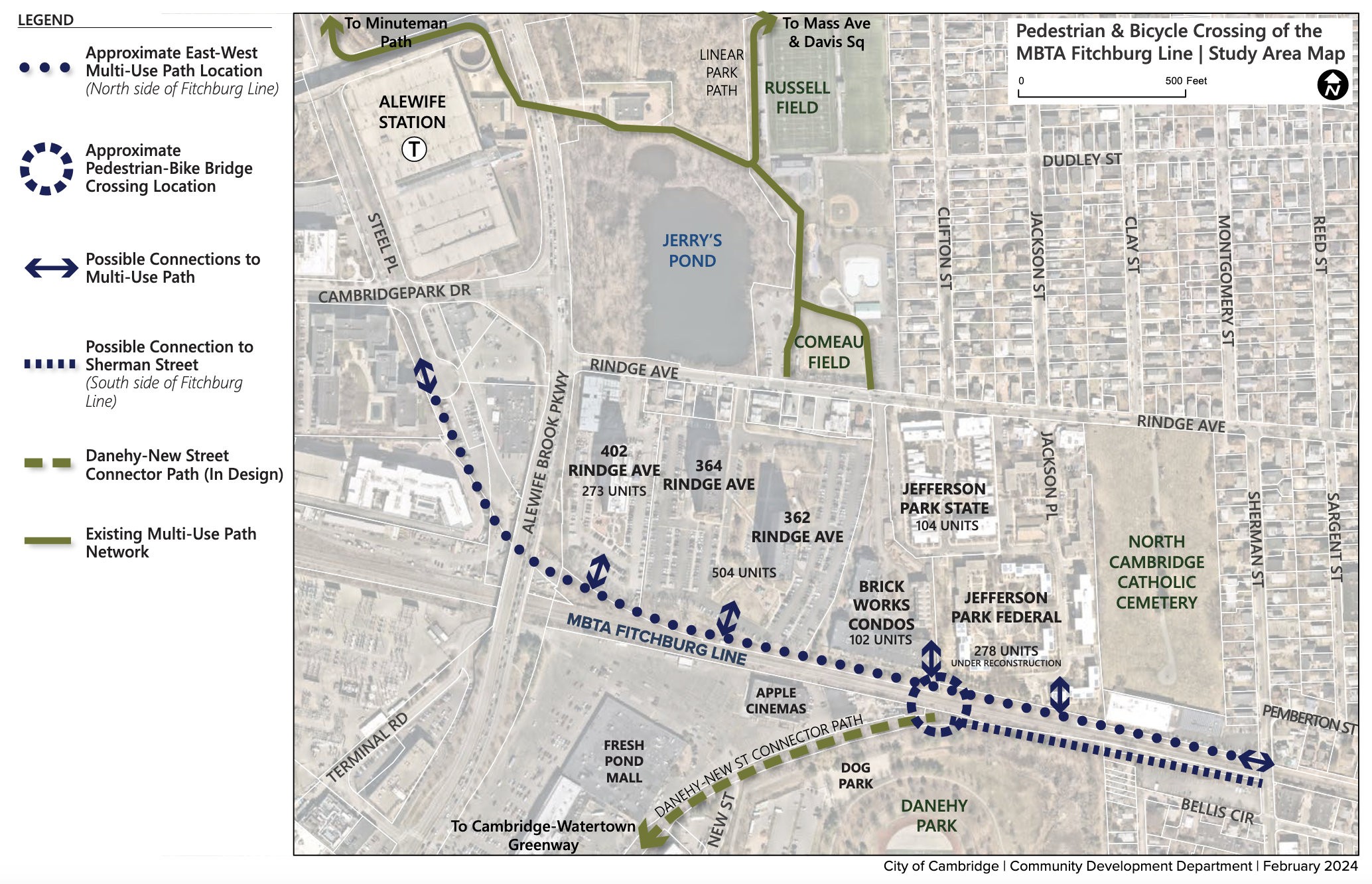Last-Minute Legislation Legalizes (Some) E-Bikes, Axes Low-Income Fares, and Throws More Cash At EVs
4:33 PM EDT on August 1, 2022
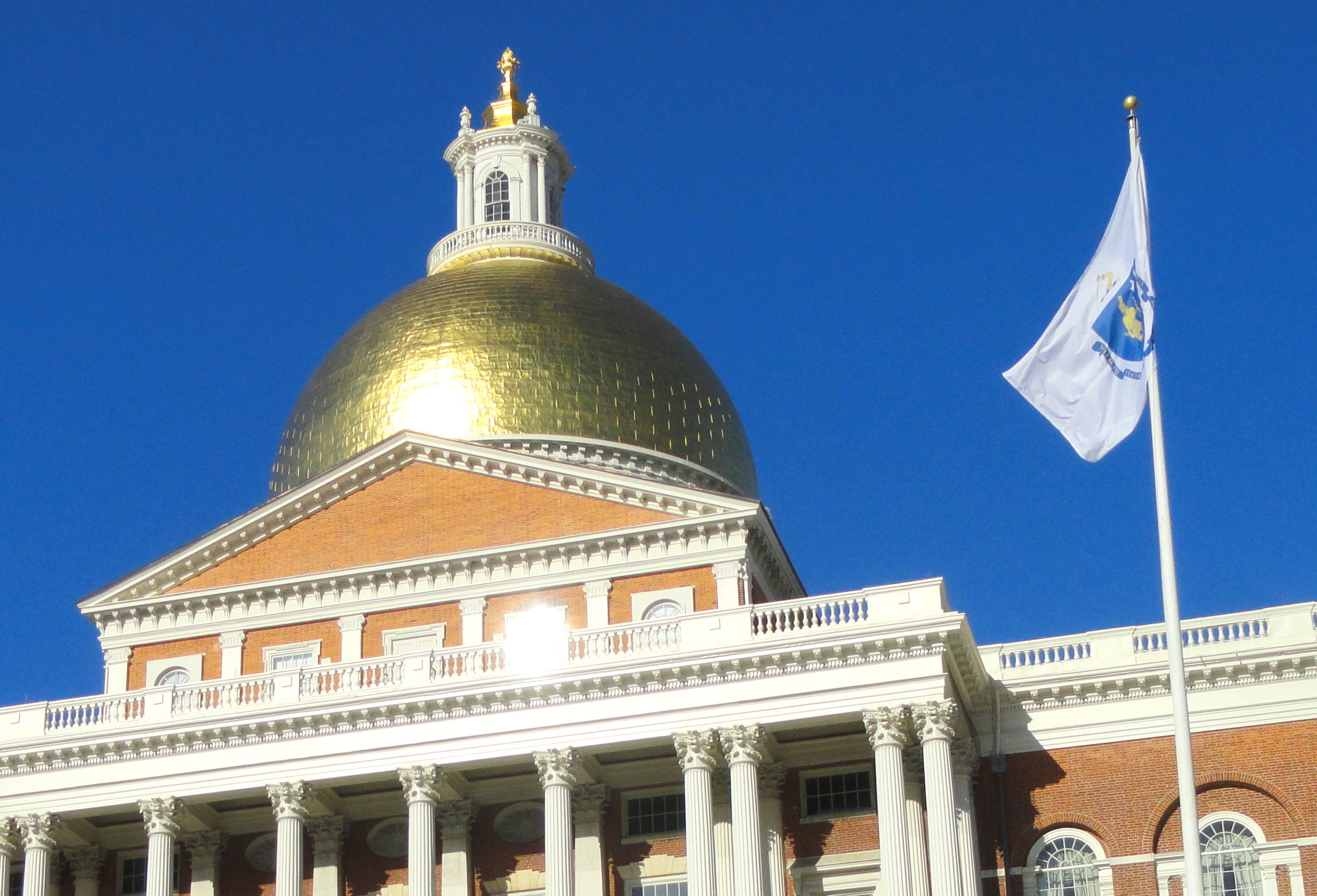
The Massachusetts State House in downtown Boston.
In a flurry of last-minute weekend action, the Massachusetts Legislature passed a compromise transportation bond bill and sent back to Governor Charlie Baker a sweeping climate bill with significant changes to the state’s electric vehicle policy.
Among the key provisions in the bond bill was e-bike legislation which could help expand the use of the vehicles in Massachusetts.
The bill defines and legalizes “Class 1” and “Class 2” e-bikes, which are pedal- and throttle-assisted electric bikes that assist the rider at speeds up to 20 miles per hour.
Left out of the bill, and remaining in a legal gray area, are “Class 3” bikes, which provide electric pedal assist up to 28 mph.
“We got about two-thirds of what we were looking for,” said Galen Mook, executive director of MassBike.
But it’s a victory that can help advocates push for the expanded use of e-bikes, including for bikesharing systems across Massachusetts
Municipalities, including Boston, have been hesitant to include e-bikes in their bikeshare systems because of the legal uncertainties, Mook said.
Once Baker signs the legislation, advocates can point to the new definition to combat that hesitation.
MassBike is also planning to expand conversations around the use of electric mountain bikes on Massachusetts trails, and continue working to boost incentives for purchasing e-bikes.
“And we’re not giving up on Class 3s,” Mook said.
Low-income transit fares get the boot
Despite a late effort by the Senate to revive legislation requiring the MBTA and regional transit authorities to implement low-income fare discounts, the provision was missing from the final agreement.
Instead, the provision was demoted to a study as part of a section which creates a “special commission on mobility pricing.” In addition to studying the possibility of congestion pricing, the commission is tasked with “examining the feasibility of means tested fares” on transit.
It’s a defeat for advocates who have been pushing the legislature to help out low-income transit riders with fare discounts.
“At a time of worsening income inequality, surging costs for housing and everyday essentials, and diminished MBTA service, it is deeply disappointing that the final transportation bond bill relegates a low-income fare program to long-term study,” said Transit is Essential, a coalition of 60 advocacy groups, in a statement.
“The legislature – which passed a similar low-income fare provision at the end of the last session – has missed an opportunity to provide immediate and meaningful relief to thousands of low-income transit riders across the state,” the group said.
Governor Baker vetoed a previous iteration of the legislation in 2021.
The bond bill does include $6.95 million for the MBTA and RTAs to operate fare-free bus pilot programs.
It’s an expansion of the work that Boston Mayor Michelle Wu has done to experiment with fare free buses in the city, but whether it’s enough money to fund impactful pilots remains in question: the nearly $7 million is less than Boston dedicated to study going fare-free on just three bus lines.
The bond bill also authorizes $275 million in borrowing for the East-West passenger rail project.
Climate bill boosts EV charging, tweaks rebates
Another piece of legislation which was part of the last-minute maelstrom was a climate bill that resulted from a compromise between the House and Senate.
The final version of the bill includes a new electric vehicle adoption fund to top up the state’s electric vehicle (EV) rebate program, MOR-EV, with some changes.
It would increase the price cap on EVs from $50,000 to $55,000, while also increasing the base rebate from $2,500 to $3,500. It would expand the program to some used vehicles and also offer a higher rebate for low-income drivers.
To build out the state’s charging infrastructure, the bill requires MassDOT to install chargers at all turnpike service plazas, five commuter rail stations, five subway stations and one ferry terminal. It also mandates that electricity distribution companies develop proposals for new time-of-use and off-peak charging rates to incentivize so-called “smart charging.”
The climate bill makes no provision for new rebates for e-bike purchases; however, the final version of the transportation bond bill does name "implementation of incentive programs promoting e-bikes" as an allowable use for spending in the Executive Office of Energy and Environmental Affairs, which is already working to implement new e-bike incentive programs.
The MBTA would have to electrify its bus fleet by 2040 under the legislation, but an amendment from the Senate version calling on the MBTA to electrify the commuter rail network is no longer in the final bill.
To top it all off, the bill sets a new broad mandate that all new cars sold in Massachusetts by the end of 2035 will be electric.
There’s a bit of uncertainty still around the legislation. Governor Baker sent a set of substantial amendments back to the legislature on Friday, and they ultimately produced a bill that made some but not all of those changes.
Baker’s being widely urged to approve the bill, and lawmakers saw his engagement as a good sign of collaboration, but it’s not yet guaranteed that he’ll sign the legislation into law.
Sam Mintz is a Boston-based journalist covering transportation and energy policy. Before moving back to his hometown in 2021, Sam spent five years in D.C. covering Congress and federal agencies for Politico and E&E News. He lives in Brighton, equidistant to stops on the B,C, and D branches of the Green Line.
Read More:
Stay in touch
Sign up for our free newsletter
